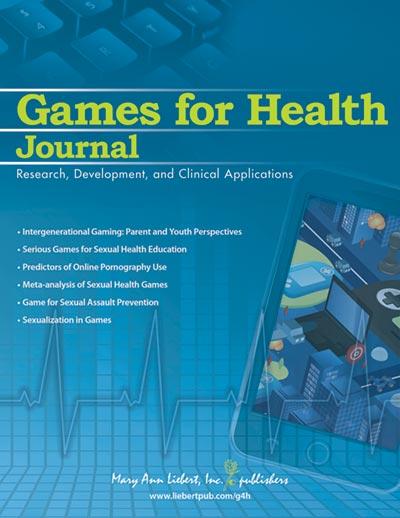
Credit: (c) 2019 Mary Ann Liebert, Inc., publishers
New Rochelle, NY, July 15, 2019–A new study has shown that videogames, when used as part of an emotional intelligence training program, can help teenagers evaluate, express, and manage their own emotions immediately after the training. The study design, interpretation of results, and implications of these findings are published in Games for Health Journal, a peer-reviewed publication from Mary Ann Liebert, Inc. publishers. Click here to read the full-text article free on the Games for Health Journal website through August 15, 2019.
The article entitled “Can Videogames Be Used to Promote Emotional Intelligence in Teenagers? Results from EmotivaMente, a School Program” was coauthored by Claudia Carissoli and Daniela Villani, Università Cattolica del Sacro Cuore (Milan, Italy). The researchers developed an emotional intelligence training program that integrated videogames as experience-based learning tools. The experimental group of teenagers participated in eight sessions and their emotional competency was evaluated before beginning the program, at the end of the training, and three months later. The researchers provide recommendations for future research based on the results of this study.
“Games for health have been designed to address an increasing variety of issues. A relatively new health issue is emotional intelligence, which has implications for various health problems, including coping with stress,” says Tom Baranowski, PhD, Editor-in-Chief of Games for Health Journal, from USDA/ARS Children’s Nutrition Research Center, and Department of Pediatrics, Baylor College of Medicine, Houston, TX. “Carissoli and Villani created a videogame, EmotivaMente, to enhance emotional intelligence among adolescents, perhaps the group that could benefit most. Their preliminary evaluation indicated that playing the game enhanced the students’ evaluation and expression of emotions. This is an important first step in designing a game to learn to manage emotions. While the impact was limited, further enhancements to the game may have substantial additional effects. Stay tuned!”
###
About the Journal
Games for Health Journal breaks new ground as the first journal to address this emerging and increasingly important area of health care. The Journal provides a bimonthly forum in print and online for academic and clinical researchers, game designers and developers, health care providers, insurers, and information technology leaders. Articles explore the use of game technology in a variety of clinical applications. These include disease prevention and monitoring, nutrition, weight management, and medication adherence. Gaming can play an important role in the care of patients with diabetes, post-traumatic stress disorder, Alzheimer’s disease, and cognitive, mental, emotional, and behavioral health disorders.
About the Publisher
Mary Ann Liebert, Inc. is a privately held, fully integrated media company known for establishing authoritative peer-reviewed journals in many promising areas of science and biomedical research, including Cyberpsychology, Behavior, and Social Networking and Telemedicine and e-Health. Its biotechnology trade magazine, GEN (Genetic Engineering & Biotechnology News), was the first in its field and is today the industry’s most widely read publication worldwide. A complete list of the firm’s 80 journals, books, and newsmagazines is available online at the Mary Ann Liebert, Inc. website.
Media Contact
Kathryn Ryan
[email protected]
Original Source
https:/
Related Journal Article
http://dx.




